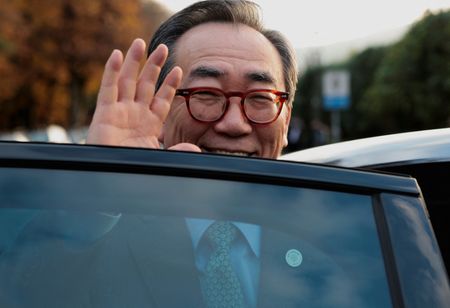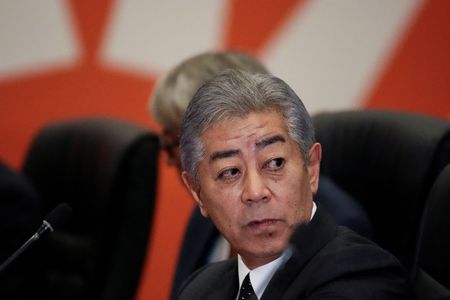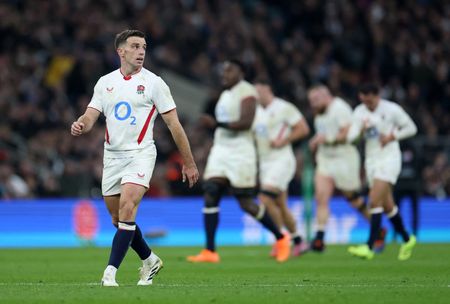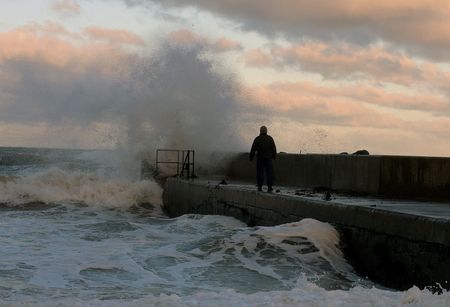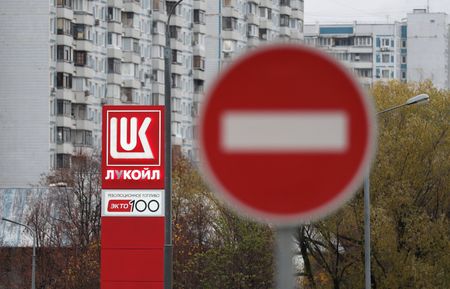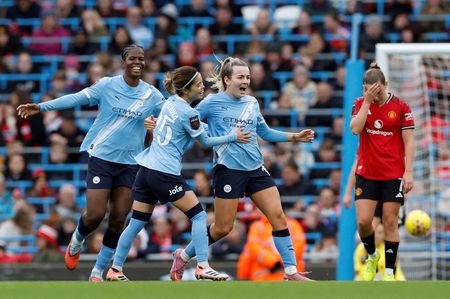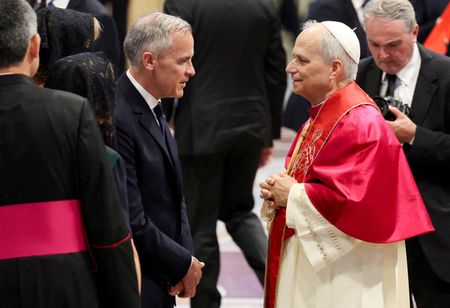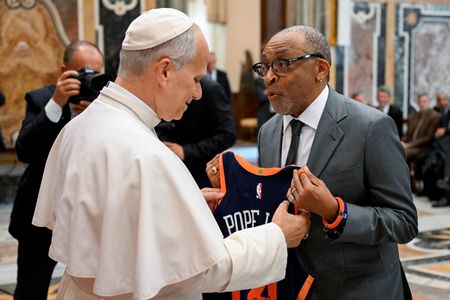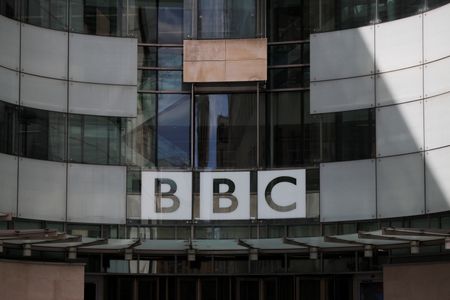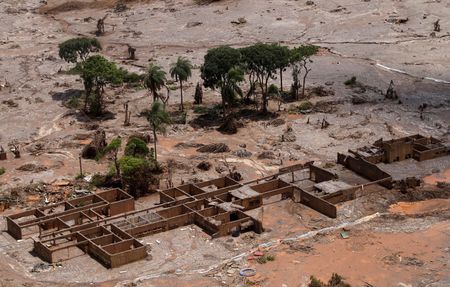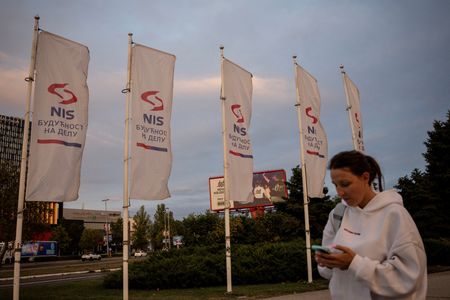By Hyunsu Yim
SEOUL (Reuters) -Foreign ministers from South Korea and Japan met in Seoul on Monday to discuss strengthening their relations in the face of increasing security challenges in the region and political tumult in the host nation.
It marked the highest-level diplomatic meeting between the countries since South Korean President Yoon Suk Yeol’s short-lived imposition of martial law last month, a move that has triggered political turmoil in one of Asia’s most vibrant democracies.
It also came amid heightened concerns about North Korea’s missile testing and deepening security pact with Russia, and China’s increasingly muscular attempts to assert its maritime claims in the South and East China Seas.
“The security situation in this region is becoming very severe, and in that strategic environment, the importance of Japan-ROK relations has not changed, and in fact has become increasingly important,” Japan’s Takeshi Iwaya said at a joint press conference with South Korea’s Cho Tae-yul.
Iwaya is also due to meet acting South Korean President Choi Sang-mok, who is standing in for impeached President Yoon.
Yoon has been holed up in his hillside villa in Seoul since parliament voted to suspend him last month over his martial law decree on Dec. 3 with investigators vowing to arrest him in a separate probe into possible insurrection.
At their press conference, Iwaya and Choi also both reiterated the importance of developing three-way security cooperation with their shared ally, the United States.
With the administration of U.S. President-elect Donald Trump set to begin on Jan. 20, none of the original leaders who established the security pact between the countries in 2023 – U.S. President Joe Biden, Yoon, and former Japanese Prime Minister Fumio Kishida – will remain in power.
Yoon had made it a diplomatic priority to mend ties with Tokyo – often strained by historic issues – and pursue a joint security drive with Washington to tackle North Korea’s military threats.
In a nod to those efforts to put aside historic issues, Iwaya earlier on Monday visited the Seoul National Cemetery which honours Korean veterans, including those who died seeking independence from Japanese colonial rule which ended in 1945.
Also on Monday, Japan, the Philippines and the United States vowed to further deepen cooperation under a trilateral arrangement in the face of rising tensions in Asia’s waters, following a call among their leaders.
Last week, U.S. Secretary of State Antony Blinken on a visit to South Korea expressed confidence in Seoul’s democratic process, although he said Washington had expressed “serious concerns” over some of the actions Yoon took over the course of his martial law declaration.
Despite polls showing a majority of South Koreans disapprove of Yoon’s martial law declaration and support his impeachment, his ruling People Power Party (POP) has enjoyed somewhat of a revival.
Support for the PPP stood at 40.8% in the latest Realmeter poll released on Monday, while the main opposition Democratic Party’s support stood at 42.2%, within a margin of error and down from a gap of 10.8% from last week, the poll said.
(Reporting by Hyunsu Yim, Joyce Lee and John Geddie in Seoul and Tim Kelly and Kevin Buckland in Tokyo; Editing by Ed Davies and Raju Gopalakrishnan)

